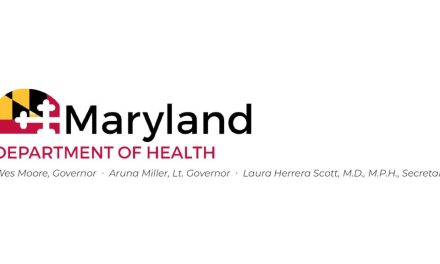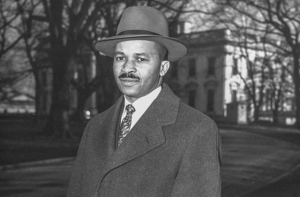By Ashlee Banks
Special to the AFRO
Congresswoman Shontel Brown (D-Ohio-11) took a significant step to address the pressing health care workforce shortage in the United States by introducing the Expanding the Health Care Workforce Act. The statute aims to help students, particularly those from underrepresented communities, pursue careers in health care through innovative work-based learning programs.
If enacted into law, the legislation would establish a federal demonstration grant program that will enable hospitals to create or expand educational partnerships with high schools. By following the successful model of the Lincoln-West School of Science and Health in Cleveland, Ohio, the legislation seeks to provide students with hands-on experience in health care settings, preparing them for future careers in a rapidly growing industry.

Lincoln-West, which operates in partnership with MetroHealth, is unique as it is the only high school in the nation with classrooms located within a hospital. This proximity allows students to gain invaluable insights and practical skills that are crucial for entering the health care workforce.
In a statement obtained by the AFRO, Brown said it is important to “expand this model” beyond Northeast Ohio.
“[The act] would provide similar opportunities for students, while growing the workforce in the future so more care and service can be provided,” said Brown.
The congresswoman added that she is committed to equity in education and that this bill aligns with the broader goals of increasing diversity in health care, which is critical for improving health outcomes in underserved communities.
In 2023, Brown hosted a roundtable discussion at MetroHealth, highlighting the importance of this innovative program along with U.S. Department of Health and Human Services Secretary Xavier Becerra, and other stakeholders.
With health care being one of the largest and fastest-growing employment sectors, the demand for qualified health care professionals is expected to increase significantly in the coming years. The Expanding the Health Care Workforce Act aims to address this shortage by authorizing the Department of Health and Human Services to award at least 20 demonstration grants nationwide. This initiative is essential not only for bolstering the workforce but also for ensuring that a diverse array of voices and experiences are represented in health care professions.
For Black communities, this legislation is particularly important. Historically, systemic barriers have restricted access to educational and career opportunities in health care for Black students and professionals. By creating pathways for students to engage with the health care system from a young age, the Expanding the Health Care Workforce Act seeks to dismantle these barriers and foster a more equitable workforce.
MetroHealth President and CEO Dr. Christine Alexander expressed her support for the legislation, recognizing the importance of creating a robust pipeline for future health care professionals.
“Lincoln-West School of Science & Health at MetroHealth, which opened in 2016, has been one of our proudest achievements,” she said in a statement obtained by the AFRO. “We want other hospitals and school districts across the country to be able to take advantage of the tremendous benefits we have realized.”
Lisa Farmer Cole, chief of external affairs for the Cleveland Metropolitan School District, added that the bill supports their core value of equity and inclusion.
“We are teaching health care with an equity lens,” she said in a statement..
The Expanding the Health Care Workforce Act has garnered support from a diverse group of 19 cosponsors, including representatives from various states, which reflects a collective commitment to addressing health care disparities and workforce shortages across the nation.
The post Rep. Shontel Brown introduces legislation to boost numbers, diversity of health care workforce appeared first on AFRO American Newspapers.











